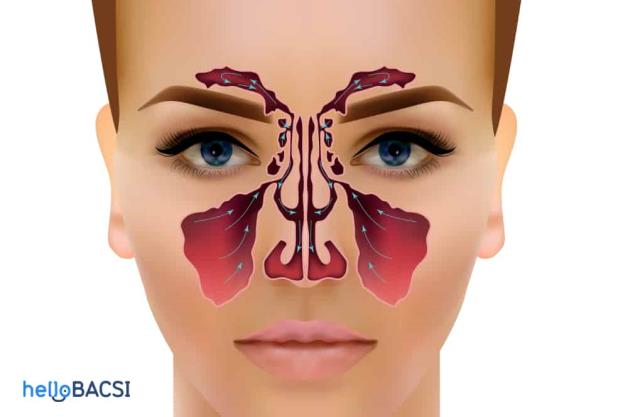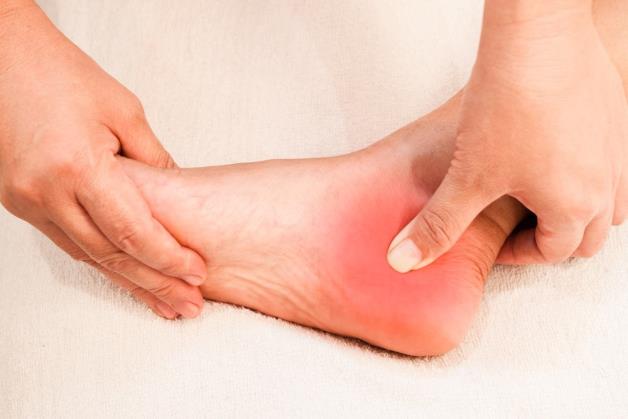Stomach pain in the morning can have many causes. The most common causes are digestive problems that range in severity from mild to severe.
Why do you often have stomach pain in the morning? The information in this article may be of help to you.
14 reasons why your stomach hurts in the morning
Stomach pains that occur in the morning often make it difficult for patients to start a new day. Here are 14 common causes.
1. Stomach Acid Reflux

Acid reflux is a condition in which acid and other substances in the stomach move the wrong way. They flow back up into the esophagus causing you to often experience heartburn.
If left untreated, it can cause complications and often leave you with an upset stomach in the morning.
2. Gastritis

Gastritis or inflammation of the stomach lining can occur spontaneously or develop insidiously over time. If you have gastritis, you will often experience mild to severe pain in your upper abdomen.
According to Medical News Today, gastritis can also make you nauseous, vomiting, or always feel full even if you haven't eaten or eaten very little.
3. Gastroenteritis
This is a viral or bacterial infection that attacks the stomach and intestines. It gives you an upset stomach and diarrhea.
4. Gastric ulcers

People often call this disease a stomach ulcer. It can cause a dull ache or stomach ache in the morning or at other times of the day. A peptic ulcer is an ulcer in the lining of the stomach or the lining of the small intestine closest to the stomach.
5. Appendicitis
Appendicitis is a common cause of severe stomach pain. It usually appears suddenly in the area around the navel and then spreads to the lower area. The pain gets worse over time. Other symptoms may include fever and nausea.
People with appendicitis need to have surgery as soon as possible to prevent complications.
6. Crohn's disease

Crohn's disease can cause inflammation anywhere along the digestive tract (from the mouth to the anus). Inflammation leads to symptoms such as cramps and stomach pain. In addition, it can also be accompanied by other symptoms such as diarrhea, constipation, weight loss.
7. Indigestion
Persistent indigestion is also likely to cause morning stomach upsets. Along with that, indigestion can also cause you to have nausea, bloating, and abdominal distension.
8. Irritable Bowel Syndrome

Irritable bowel syndrome is a common disorder that can cause stomach pain and change your bowel habits. People with this condition often experience constipation and frequent diarrhea. It also makes you feel bloated.
9. Food allergies
Abdominal pain, stomach pain are common symptoms when you have food poisoning. Other manifestations may be nausea, urticaria. If you have a severe food allergy, you can go into anaphylaxis and die.
10. Diverticulosis

The disease is common in the elderly. It occurs when segments of the colon bulge in the pouches. When diverticula become inflamed or infected, they cause symptoms such as morning stomach pain, fever, nausea, or more severe complications.
11. Pelvic Inflammation
Pelvic inflammatory disease is an infection that affects a woman's ovaries, uterus, fallopian tubes, and cervix. According to Healthline, pelvic inflammatory disease most commonly occurs in women aged 15-24 years.
The most common symptom is lower abdominal pain. Other symptoms include fever, unusual vaginal discharge, and pain during sex or urination. If not treated in time, the disease can cause more serious complications.
12. Celiac disease

Celiac disease is also known as gluten intolerance. This condition causes the patient's immune system to attack the small intestine when they eat anything that contains gluten.
The most common symptoms of celiac disease are stomach pain and diarrhea.
13. Gallbladder disease
Gallbladder problems can give you an upset stomach in the morning or at any time of the day.
If there are stones in the gallbladder, you will experience other symptoms such as nausea, vomiting, dark urine, jaundice, and a drop in blood pressure.
14. Pancreatitis
Pancreatitis is often the result of gallstones. Common symptoms include sudden and severe pain in the upper abdomen, nausea, and vomiting. If you experience this pain, you need immediate medical attention.
Stomach ache in the morning: When to see a doctor?

Various health problems can cause morning stomach upsets. Among them, there are some conditions you can self-treat pain at home. Others need medical attention as soon as possible. You need to go to the hospital when:
The pain is severe
If the pain is so severe that you cannot stand up, seek medical help immediately. At that time, you may be dealing with appendicitis.
Prolonged pain
The longer a person has stomach pain in the morning, the faster they need to be treated in medical institutions.
Age
Severe stomach pain in a young person may be related to appendicitis. Meanwhile, if the pain occurs in older adults, it may be related to gallbladder problems. Both of these conditions require prompt medical treatment.
Accompanying symptoms
People with stomach pain in the morning accompanied by other symptoms such as fever, vomiting or abdominal pain need to go to the hospital for medical examination.


















